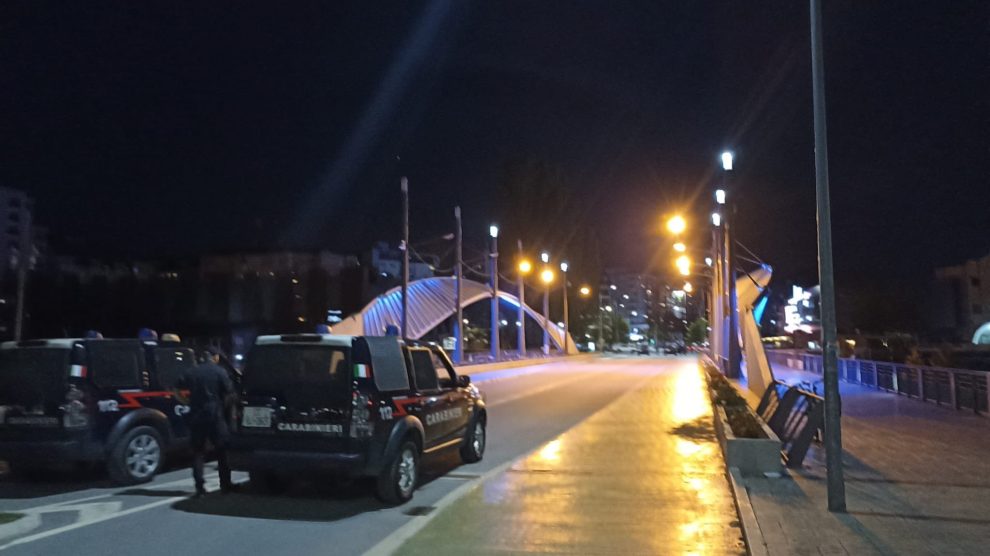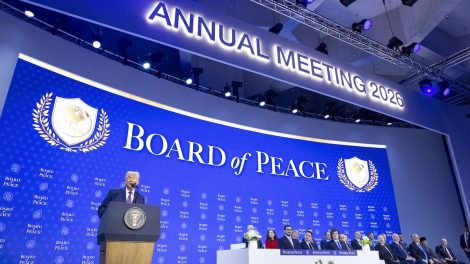Kosovo-Serbia tensions running sky-high. Protests swept the north of Kosovo on Sunday, as the ethnic Serbian community fought against new regulations that would have forced the adoption of Kosovan-issued car number plate numbers – a highly sensitive issue in a region rife with identitarian clashes.
- On Sunday, protesters barricaded roads and fired shots, although no injuries have been reported. Anti-aircraft sirens sounded for a few hours in and around Mitrovica, a city in northern Kosovo, close to the border with Serbia.
- The NATO-led Kosovo Force (KFOR) – a peacekeeping mission mandated by the United Nations, participated by 28 countries and supported by the European Union – said it was monitoring the “tense” situation and was “prepared to intervene if stability is jeopardised.”
No spillover yet. On Sunday evening, Kosovo authorities announced they would delay the new measures by 30 days. Serbian President Aleksandar Vucic, who had blamed Pristina for the tensions and heightened the rhetoric, appears to be taking steps towards de-escalation.
- European diplomacy called for dialogue and said it would coordinate with NATO and Western allies.
- Meanwhile, Russia has been siding with Serbia and accusing the West. Maria Zakharova, the spokeswoman for the Foreign Ministry, called on “Pristina, the US and the EU to end the provocations.”
Italy is closely monitoring developments, mainly due to its prominence within KFOR. Members of the Carabinieri, one of Italy’s police corps, have been patrolling the streets of Mitrovica.
- Rome currently provides the largest contingent in the 3,600-strong mission. Italian forces amount to 638 military personnel, 230 land vehicles and one aeroplane. The deputy mission commander himself is Italian; currently, it’s General Luca Piperni.
- Italian forces have been in Kosovo since day one of KFOR’s operations; they entered the country on June 12, 1999, and reached the city of Pec, which still hosts the bulk of the Italian deployment.
Tallying Rome’s involvement. Italy is in charge of the Regional Command West (RC-W), headed by Italian Army Colonel Ivano Marotta and quartered near Pec. It comprises:
- a rapidly deployable kinetic battalion tasked with supporting local and international organisations in the event of a deterioration of the security situation in Kosovo;
- a non-kinetic battalion, in charge of supporting situational awareness and conducting the communication campaign together with the local authorities to constantly monitor the social, economic, political and security situation in the area.
The Multinational Specialised Unit is another fundamental structure of KFOR. It’s based in Pristina and composed entirely of Carabinieri, currently led by Colonel Maurizio Mele.
- The unit provides KFOR with the capacity for security operations, including public order and riot control and the collection and evaluation of criminal intelligence information. It also provides advice, training and support to local police forces.
- The Carabinieri core has always been deployed in the northern part of the country, characterised by a strong presence of ethnic Serbs, and especially in the city of Mitrovica, where protests have been concentrated.
Further assets. KFOR Intelligence, the mission’s surveillance and reconnaissance battalion, stationed in Pristina, is also commanded by an Italian Army officer, Lieutenant Colonel Fabrizio Naso. And an additional ninety military personnel, hailing from the Italian Armed Forces and Carabinieri, are stationed at the NATO headquarters in Pristina. An Italian-led Liaison Monitoring Team is also part of the US-led Regional Command East, which operates in the capital.





